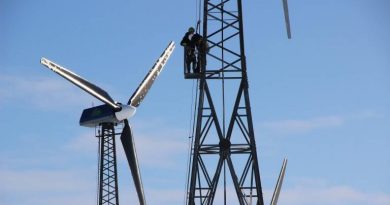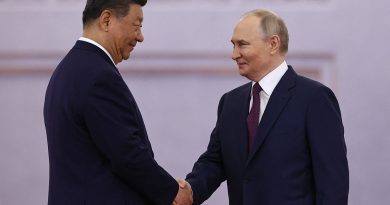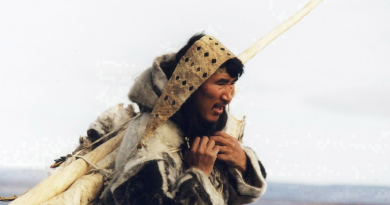Canadian students flex their diplomatic chops in Arctic Council simulation
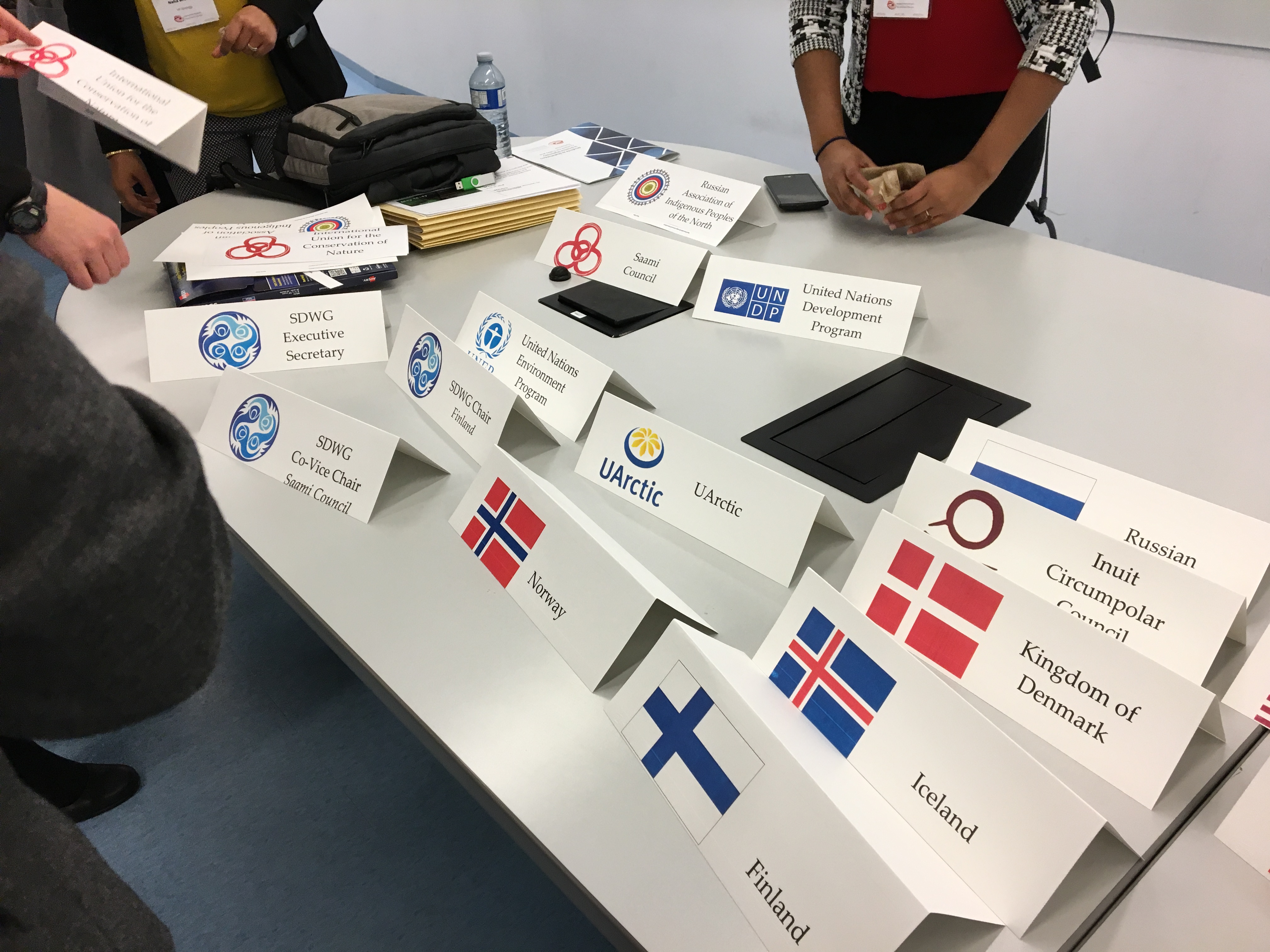
A group of Canadian students and early-career scientists got the chance to flex their diplomatic chops on Wednesday by participating in a mock Arctic Council session at McGill University in Montreal.
The session was held as part of Negotiating the Arctic: A science diplomacy perspective, a forum put on by Science and Policy Exchange, a non-profit group run by graduate students and post-doctoral fellows in Montreal, that works to expose students to issues concerning science and policy and to foster exchanges between them and a variety of experts.
The two-dozen participants in the mock session came from Quebec, Ontario, Yukon and the Northwest Territories; and had backgrounds ranging from physics and medicine, to biochemistry and neurology.
Moving away from “competitive politics and competitive science”
Melody Brown Burkins, the Associate Director for Programs and Research in the John Sloan Dickey Center for International Understanding and Adjunct Professor of Environmental Studies at Dartmouth College in New Hampshire, led participants through hours of simulation, taking them through the finer points of consensus negotiation at the Arctic Council as well as the role of the Permanent Participants, the six Arctic Indigenous groups, and the observer states and organizations.
“One of the reasons I’m so interested in the Arctic Council is it has the premise of sustainability, cooperation and consensus,” Burkins said.
“These are opportunities to get away from competitive politics and competitive science and I like the idea of moving towards more inclusiveness; not just between nations, but between things like science and traditional knowledge. The Arctic Council is a place where all these values are clear.”
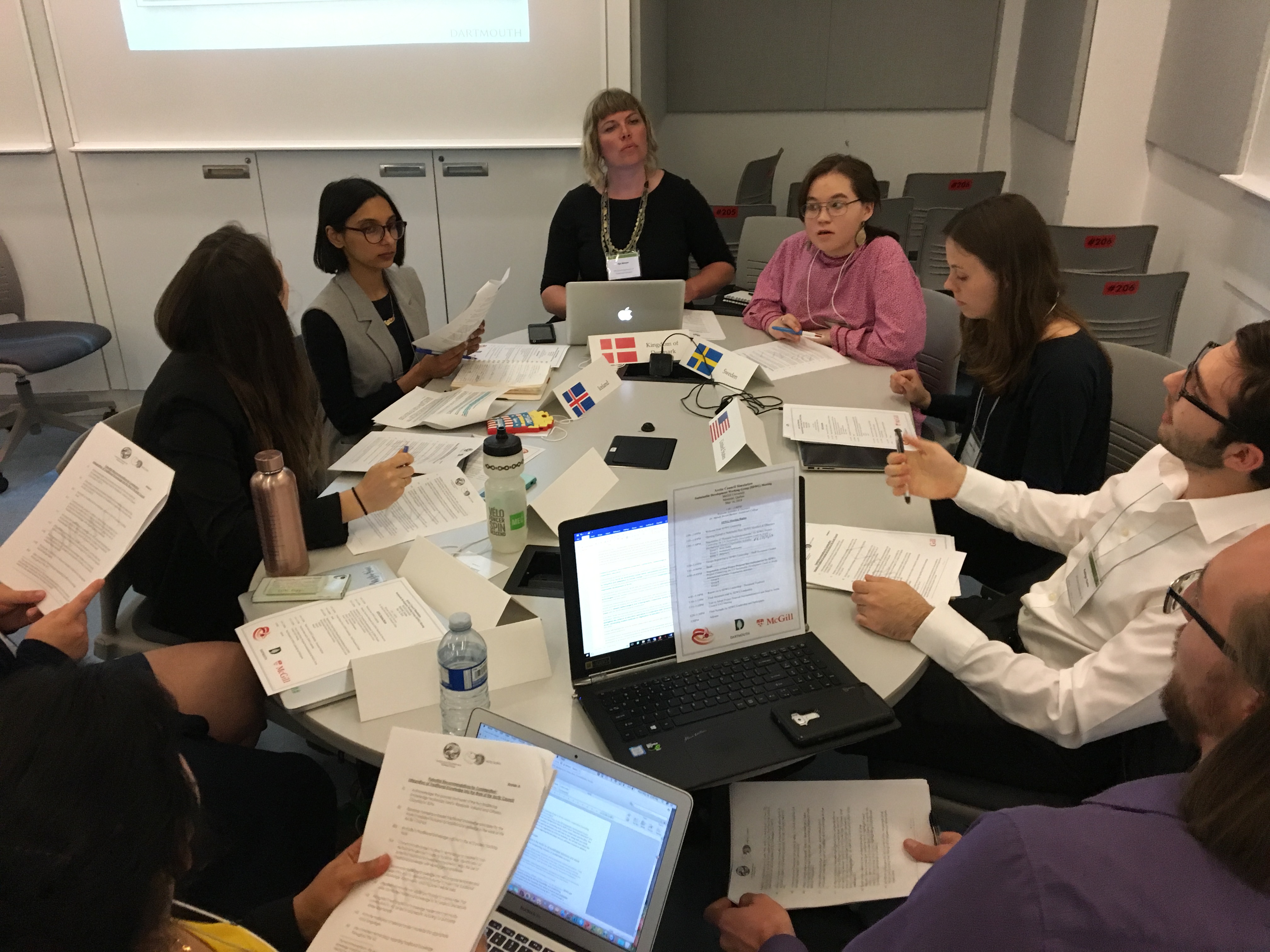
The simulation was built around a mock Sustainable Working Group Meeting to create final proposal recommendations for the project “Connecting UN Sustainable Development Goals to Arctic International Science Cooperation Activities” that could then be sent to the next Arctic Council SAO meeting.
Aja Mason, a participant from Whitehorse, Yukon who represented the Kingdom of Denmark/Greenland, in the exercise, said the hours it took to get to a first draft of resolutions gave her new appreciation of the processes it takes to produce policy.
“Participating in this exercise bolstered my sense of protectiveness of the North,” Mason said.
“I’m a 3rd generation, non-Indigenous Yukoner with the privilege associated with a highly interdisciplinary science and research educational background. While I cannot speak on behalf of all northerners, or all Yukoners, I nonetheless felt compelled to draw attention to the ways in which the processes of self-governance and self-determination of Indigenous peoples in the North is so rare in comparison to down south. As a non-Indigenous researcher, I want to participate in and promote research that doesn’t infringe on these essential capacities.”
Can Arctic cooperation be a model for scientists outside of the Arctic?
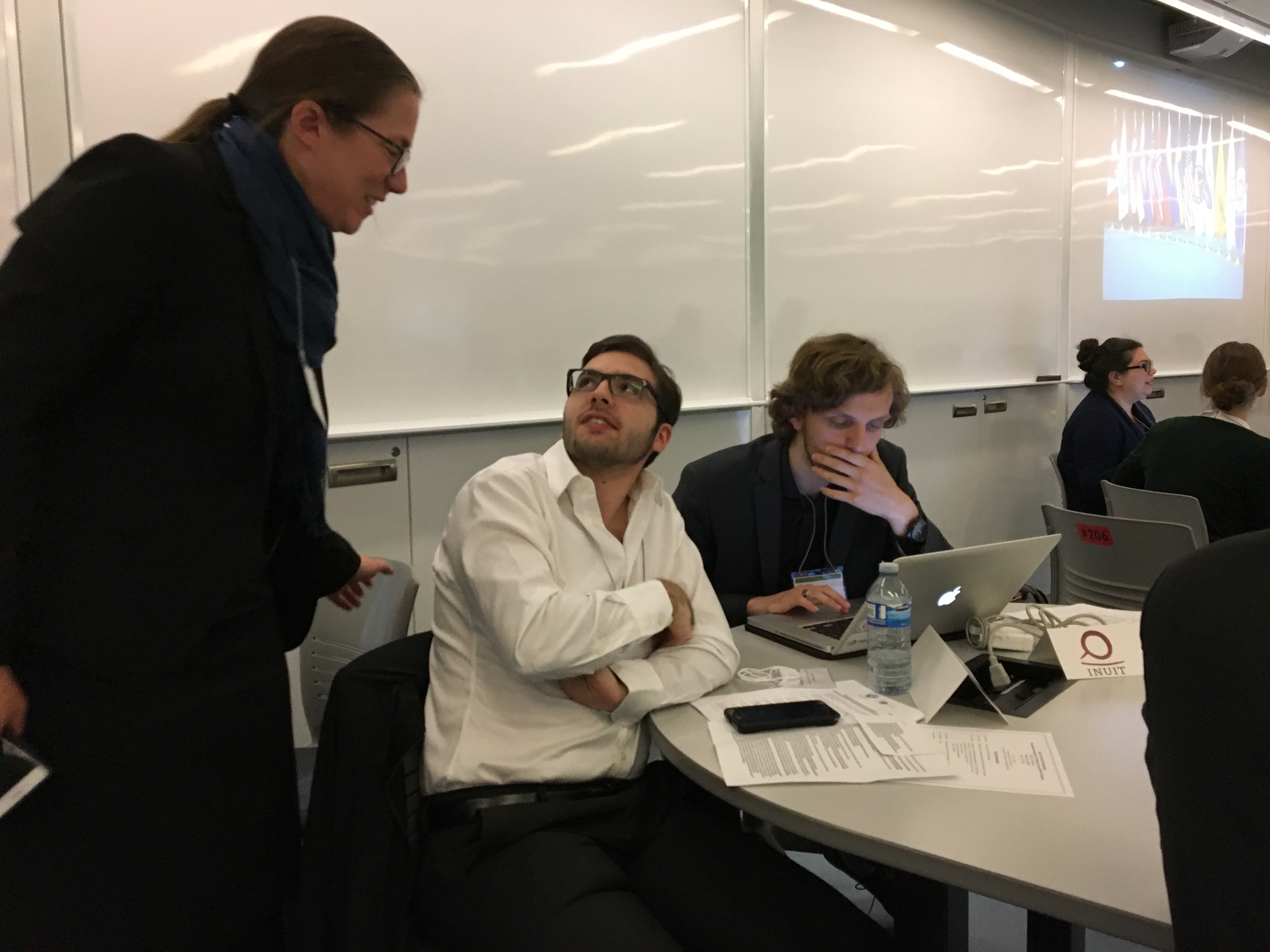
Burkins said she hopes exposing participants to the role of Indigenous Peoples on the Arctic Council, and the forum’s international cooperation on common issues, stays with the students as they establish their scientific careers.
“The Arctic Council is special because the platform was created inclusively,” she said. “I hope that future governance bodies and international scientific cooperation bodies can learn from it.
“And if any of the students can get just a little understanding about how the Arctic Council works, I hope they take that away and apply it to whatever they do, whether it’s in the Arctic or not.”
Write to Eilis Quinn at Eilis.Quinn(at)cbc.ca
Related stories from around the North:
Canada: Arctic shows what science diplomacy can achieve, Montreal forum hears, Eye on the Arctic
Finland: While West and Russia feud, council of hobbits quietly saves North, Blog by Timo Koivurova
Greenland: Inuit in Canada and Greenland seek co-management of crucial Arctic habitat, Radio Canada International
Iceland: Can environmental diplomacy save Arctic languages?, Blog by Takeshi Kaji
India: From the south, keen interest in the Arctic and the Arctic Council, Alaska Dispatch News
Norway: Keeping Arctic stable and peaceful is top priority, says Norway’s foreign minister, The Independent Barents Observer
Russia: Arctic Forum – Norway and Russia exchange diplomatic smiles about Arctic cooperation, The Independent Barents Observer
United States: Mixing science with traditional knowledge, researchers hope to get seal oil on the menu in Alaska, Alaska Public Radio Network

